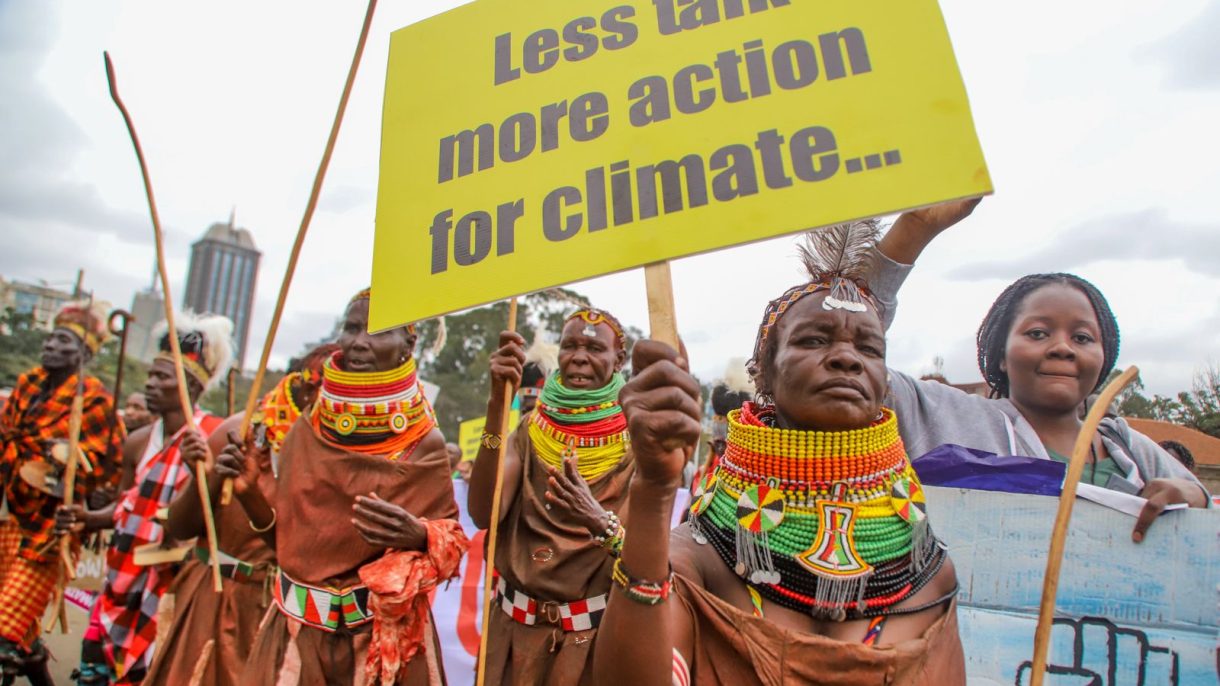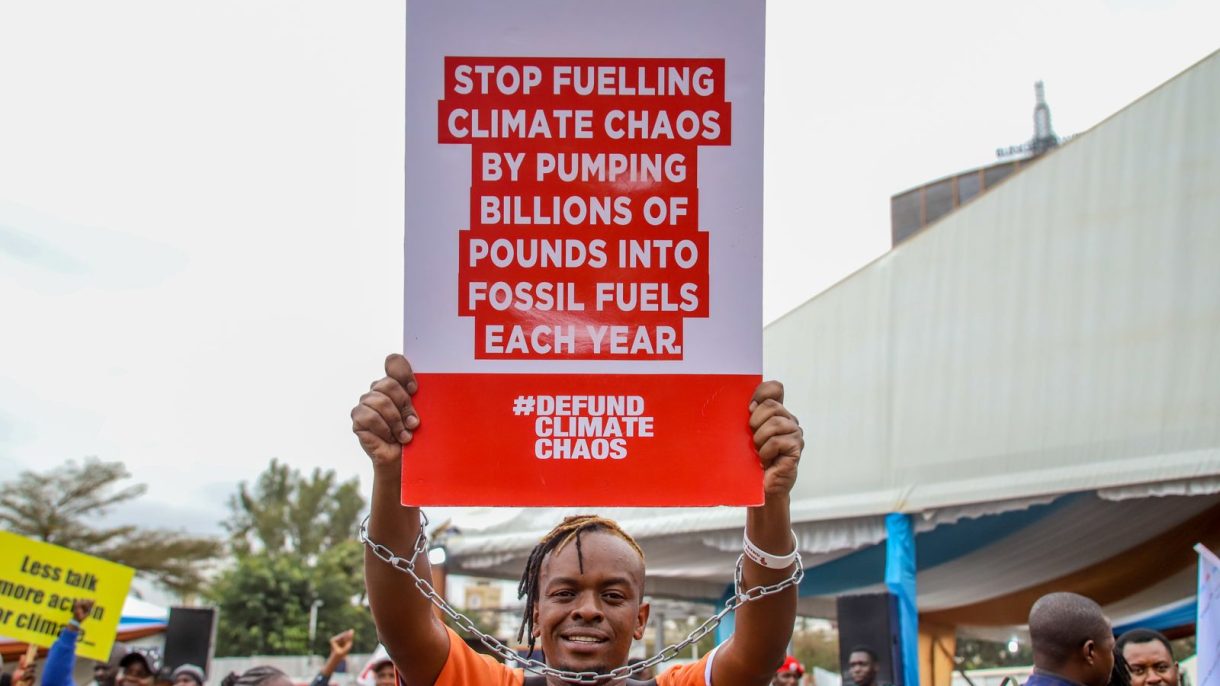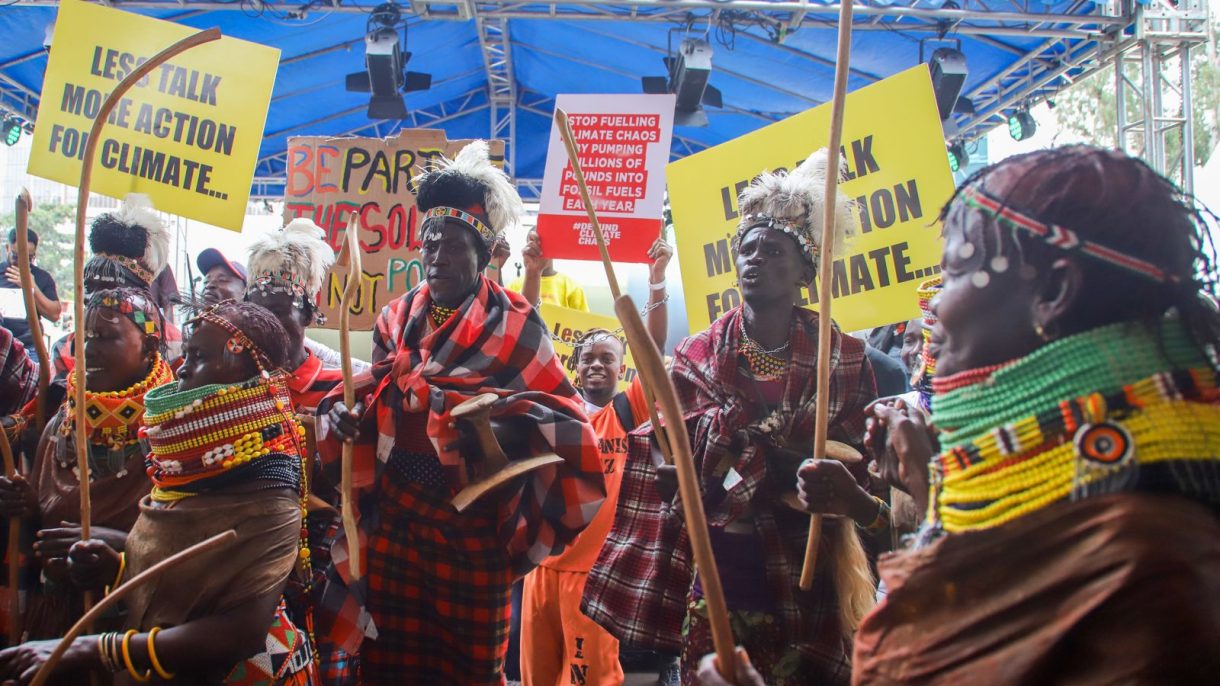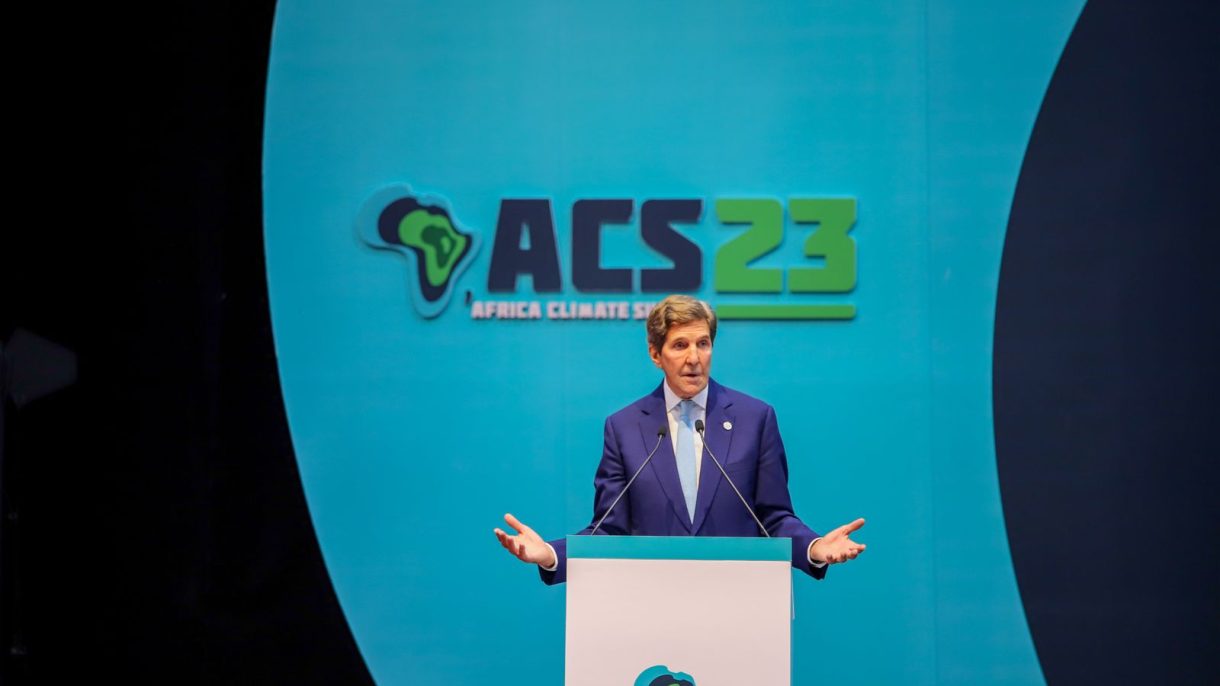In the heart of Nairobi, under the sprawling canvas of a clear blue sky, Africa made its stand. The Africa Climate Summit 2023 (ACS23) brought the world to Kenya, uniting leaders, activists, and communities from across the continent to tackle the ever-pressing challenge of climate change. The energy in the city was palpable as hundreds gathered, hopeful yet weary, ready to address a battle that Africa has long fought but rarely won.
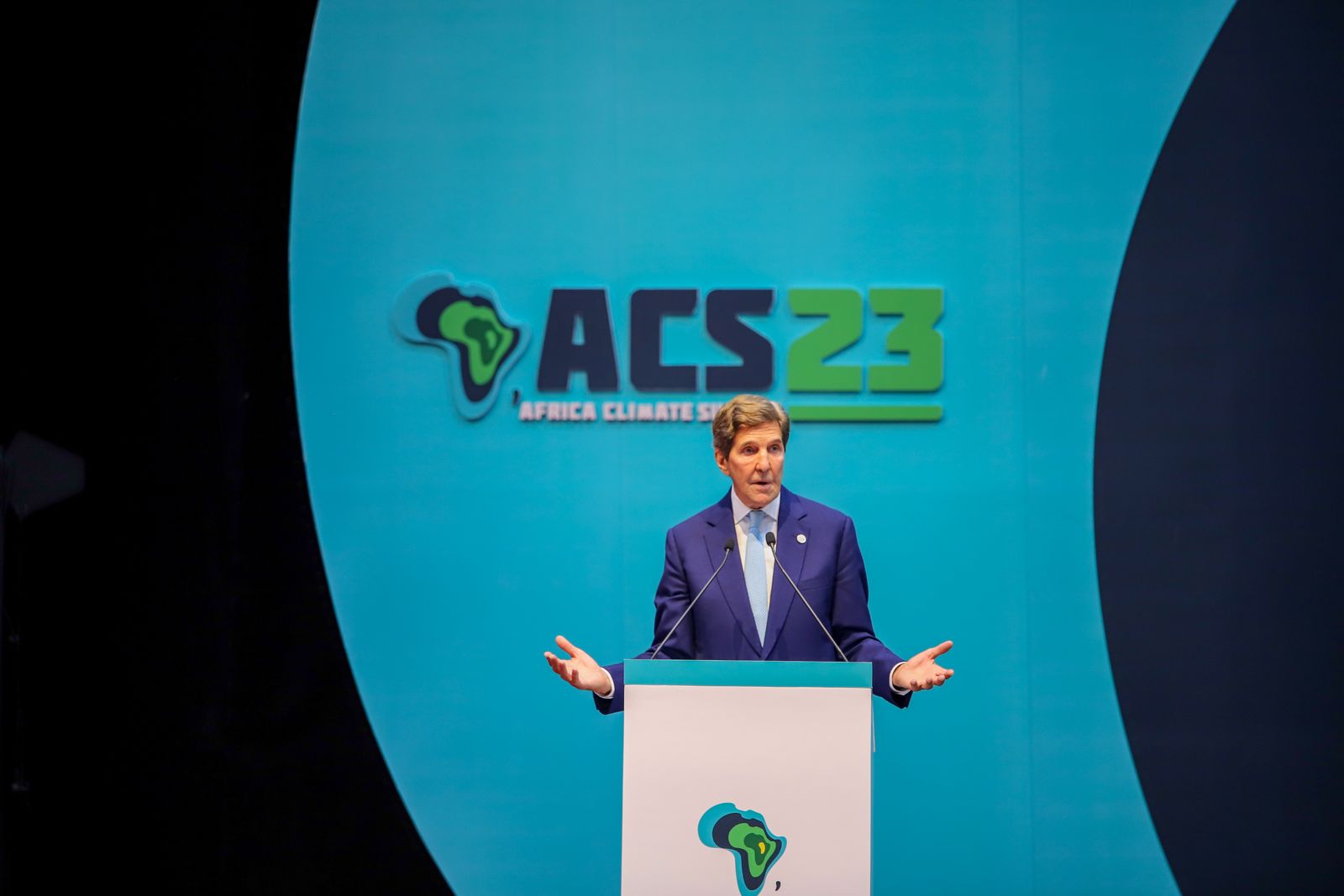
Africa’s Stand Against Climate Change at the ACS23
On the summit stage, U .S. Special Presidential Envoy for Climate John Kerry delivered a powerful address emphasizing the urgency of global action on climate change. Kerry highlighted the need for enhanced international cooperation and commitment to reducing greenhouse gas emissions, underscoring the importance of meeting the targets set in the Paris Agreement. Behind him, the bold letters of “ACS23” hovered, a testament to the scale of the event and its importance. Yet, despite the diplomacy, what unfolded outside the halls of the summit was the true voice of the people.
Outside the Africa Climate Summit 2023 People Cry for Climate Justice
Out on the streets, Turkana women, dressed in their traditional attire, stood proudly, a contrast to the polished suits inside. Their faces, weathered by the elements, bore the silent suffering of a people who had witnessed climate change firsthand. One of them held a sign that read, “Less talk, more action for climate.” It was a simple statement, but in those few words lay the frustrations of millions. The women’s beaded necklaces glistened in the sun, a reminder of the vibrant cultures that have lived in harmony with nature for centuries. Now, that very nature was turning against them, as droughts, floods, and erratic weather patterns threatened their way of life.
In front of them, a young boy, wrapped in chains as a symbolic gesture, held a bright red sign high above his head. “Stop fueling climate chaos by pumping billions into fossil fuels each year,” it read, the bold lettering mirroring the fierce determination in his eyes. His voice, like the cries of his generation, was loud and clear: the time for empty promises had passed. His chains clinked lightly with his every step, a powerful representation of the shackles of climate injustice that weighed heavily on the youth.
The contrast between the official summit proceedings and the grassroots protests outside could not have been more striking. While inside, polished speeches and elaborate agreements were being drafted, outside, the streets were alive with raw emotion. Indigenous communities, environmental activists, and concerned citizens marched side by side, their banners fluttering in the breeze, demanding the world take notice.
One elder, with deep-set eyes that seemed to carry the weight of generations, spoke quietly to a journalist. “We have lived with nature for so long, and now we are being punished for things we did not cause,” she said. “We are not the ones burning fossil fuels, but we are the ones facing the droughts. We are not the ones causing emissions, but we are the ones who cannot grow food.” Her words hung heavy in the air, filled with a profound sense of injustice.
Inside the summit, the rhetoric was polished, the atmosphere professional. Yet, the tension was undeniable. The African leaders in attendance knew that their countries contributed the least to global emissions yet suffered disproportionately from climate disasters. Their calls for climate justice resonated through the halls, urging richer nations to honor their commitments to financial support for climate adaptation and mitigation.
But it was the voices outside—the Turkana women, the chained boy, the elders—that carried the heart of the summit. As they chanted and marched, they called not just for financial aid, but for real, tangible action. Their message was clear: Africa cannot afford to wait any longer.
In the end, ACS23 will likely be remembered for more than just the agreements made behind closed doors. It will be remembered for the people who came together on the streets of Nairobi, demanding more than words. The summit may have provided a platform for dialogue, but the people provided the urgency, the raw humanity, and the emotional depth that showed the world what is truly at stake.
A Battle for Survival, Not Politics
The climate crisis is not just an abstract policy issue. It is the lives of farmers watching their crops wither under relentless heat. It is the children whose futures are being stolen by floods and droughts. It is the communities like those of Turkana, whose centuries-old ways of life are being erased. And for them, the fight for climate justice is not about politics—it is about survival.
As the summit came to a close, the speeches would soon fade from memory, but the cries of the people outside will echo long after. For Africa, the battle against climate change is not just a global fight; it is personal, and it is urgent. And as the banners in Nairobi made clear, there can be no more talk—only action.



